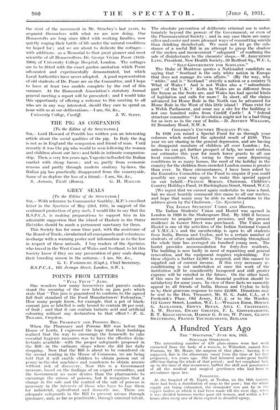TIIF. PHARMACY AND POISONS BII3,.
When the Pharmacy and Poisons Bill was before the House of Lords, I expressed the hope that their lordships realized that the way to encourage the housewife to take essential hygienic measures was to have the effective disin- fectants available—with the proper safeguards proposed in the Bill—in the ordinary shops where she did her daily shopping. Now that the Bill is about to be considered on the second reading in the House of Commons, we are being told that it will enable children to obtain poison out of penny-in-the-slot machines and murderers to obtain arsenic without risk of discovery. Now this is a Government measure, based on the findings of an expert committee, and the Government no more desires than the pharmacists to encourage the misuse of poisons, but it recognizes that a change in the sale and the control of the sale of poisons is necessary in the interests of those who have to buy them for industrial, agricultural and domestic use. There are adequate safeguards in the Bill to prevent misuse through ignorance, and, as far as practicable, through criminal intent. The absolute prevention of deliberate criminal use is unfor- tunately beyond the powers of the Government, or even of the Pharmaceutical Society ; and in any case there are many other and easier and more pleasant ways of committing suicide than drinking disinfectant. We must not let go the sub- stance of a useful Bill in an attempt to grasp the shadow of the useless and inconvenient " safeguard of confining the sale of disinfectants to the chemists' shops.—W. AanirrrozoT LANE, President, New Health Society, 39 Bedford Sq., W.C. 1.






































 Previous page
Previous page